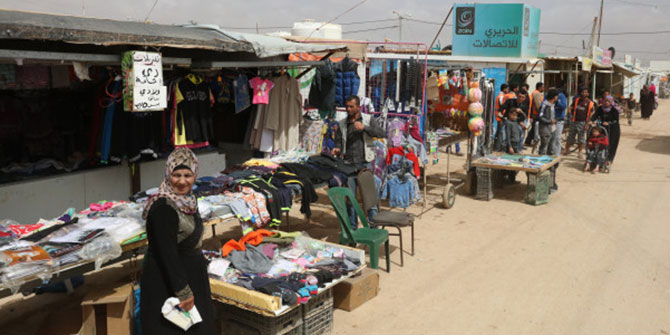LSE’s Frances Brill discusses the challenges faced by some African countries in building a sustainable tourism industry.
Tourism is a powerful vehicle for economic growth and development (World Bank, 2013). It accounts for 9.1% of the World’s GDP (WTTC, 2011). Furthermore, the World Travel and Tourism Council believe tourism could be responsible for 3.8 million jobs in sub-Saharan Africa over the next decade.
At the 2015 LSE Africa Summit, Professor Stephen Chan talked of staying in Kliptown, in a hotel which had hoped to benefit from tourists wanting to visit the sites of apartheid. He noted how in reality the tourists visited for day trips and as a result, the hotel was in decline, with no prospect of renewal. I was struck by this: how can we use history to build a future? The experience must be as fully representative as possible, and it must be done consciously. The duration of the stay is not fully indicative of how much a tourist has learned but there is a natural tendency to assume a quick in-and-out trip will fail to fully engage with the past. This is not to say that staying the night in a hotel would either, but how can we use the history of a country to develop the future?

Tourism has been effectively deployed by many countries to boost its growth and to promote themselves internationally. However, mainly countries have fallen short of their own tourism goals, failing to retain profits and depleting resources more quickly than is sustainable. On a very basic level of analysis, the Butler model of the tourist industry depicts the seven stages of development. This begins with exploration and getting different local agents involved before rapid development, the construction of big hotels and the expansion beyond initial sites. It culminates in a make-or-break situation of rejuvenation or decline. Therefore, part of creating a tourist industry which generates long-term growth is being ‘sustainable’. On the ground, this means overcoming problems of leakage and maintaining numbers in the long run.
Gambia is a good example of how things can go wrong if they are not properly managed, from an economic perspective. Thirty-one per cent of the population is employed in tourism (UNEP, 2015). Most of the tourists come from Britain or Scandinavia, the small West African country is therefore very susceptible to economic changes in these countries. To add to this, 75% of the market is operated by seven major British companies (ODI, 2008) with profits repatriated. Gambia has tried to use tourism as the launch point for greater growth but leakages have eroded its potential so far. In addition, the high pressure use of beaches has combined with natural changes to result in costal erosion, undermining beach front hotel developments where 75% of the tourist industry lies (ibid). It is imperative that tourism is developed in a more sustainable manner.
The element of ‘sustainability’ often lacking from discussions of tourism is cultural sensitivity ie how to create awareness of values and traditions without devaluing them or eroding their significance. Moreover, in many cases, there is a need to protect minority rights associated with these traditions and prevent exploitation of people. This also means being able to tell the stories, the history of a place in a productive and educational way. So we are back to Professor Chan and South Africa. South Africa attracts tourists: it has the Garden Coast, has hosted the World Cup, it has world-renowned wine regions and the ‘Big Five’. Two or three-week tours of the countries are peppered with reminders of its history, a trip to a museum here or township tour there. Developing tourism sustainably means creating awareness and helping people understand. We need to learn from the successes and failures around us, to develop a bottom-up approach to tourism capable of telling the story of the people in a culturally-sensitive way.
Frances Brill is a postgraduate student at LSE.
The views expressed in this post are those of the author and in no way reflect those of the Africa at LSE blog or the London School of Economics and Political Science.





